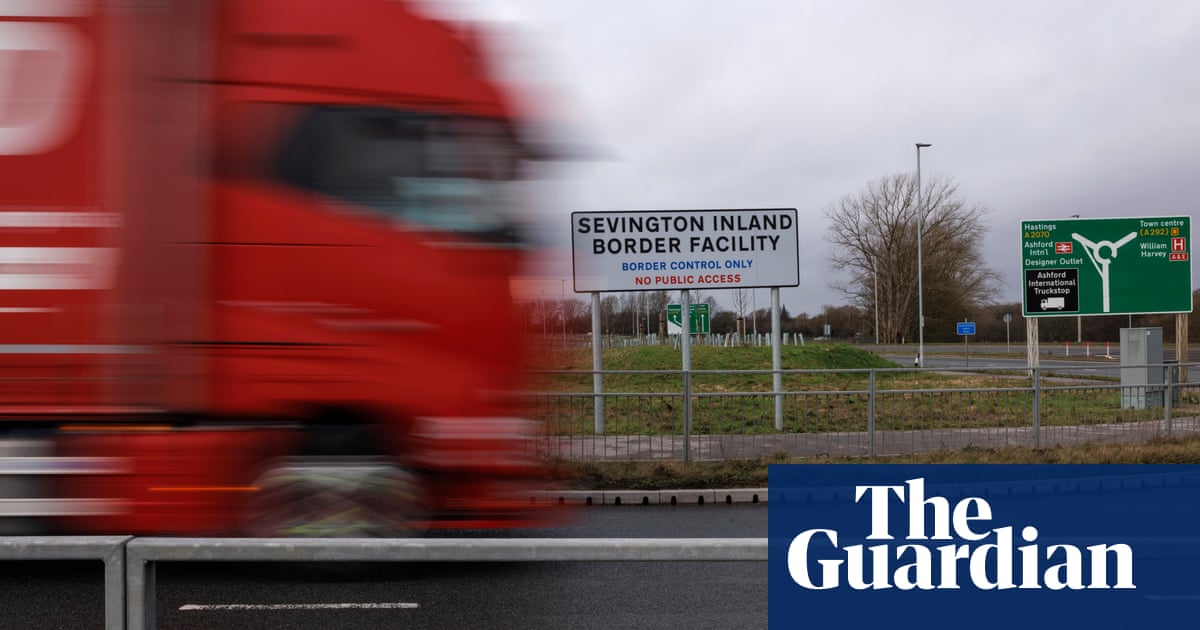Nurseries and garden centres across Britain and Europe have warned that new post-Brexit border posts are not working properly and are leading to delays, damage and significant extra costs for importers bringing plants into Britain.
The Horticultural Trade Association, which represents 1,400 garden retailers and growers in the UK, has joined forces with several European trade bodies to write an open letter to call for urgent solutions, warning the new system was adding more than 25% to import costs.
It said the checks introduced in April had held up a significant number of deliveries at the border, sometimes for as long as 44 hours, while difficulties carrying out inspections were increasing the chance of harmful pests and plant diseases entering Britain.
The new rules mean certain plant and animal products coming into Britain from the EU must now be checked at border posts situated in or nearby British ports. Previously, plants were inspected in spot checks once they had reached nurseries.
The trade bodies said the new system is causing delays and piling on costs. One haulage company said it experienced 93 hours of driver waiting time in the first week of the checks, costing it £38,000 in extra pay.
The company calculated that this would add £1.5m to its logistics bill over the next year, an increase of 25%.
Another company reported three of its trailers filled with plants were held at a border post for 44 hours after a software problem. This resulted in the majority of plants dying or wilting and the loads being rejected by the end customer.
The letter was signed by International Flower Trade Association, whose membership accounts for 80% of the total value of worldwide trade of flowers and pot plants, as well as VGB, the Dutch association of wholesalers in floricultural products.
It comes as importers are already having to deal with increased costs on moving plant and animal products to Britain because companies are now charged for inspections of goods at the border.
The letter said in some cases providers could be paying £1,740 extra to bring in a mixed load of 12 different consignments of plants, making trade unviable for many small businesses.
Under the new Brexit rules, plants for planting have been categorised as high-risk, meaning much higher rates of inspection than for businesses that import meat and dairy, which are classified as medium risk.
Importers claim the posts are too small to process goods from multiple lorries, and they said there is insufficient equipment at nearly all facilities to unload plants such as large trees or those large plants not stacked into plant trolleys.
Before the checks came in April, imported plants were held at nurseries and farms in controlled conditions before checks on site by government inspectors.
Under the new rules these checks take place almost exclusively at both government-run and privately run border posts. The government has insisted that this would enhance the country’s biosecurity by stopping harmful diseases entering the country and damaging plants and crops.
after newsletter promotion
However, the letter raised concerns about the standard of checks at border posts.
It claimed loads were being “observed, rather than intensely scrutinised”, which was increasing the chance of diseases being missed, while the lack of information on what was being checked was leaving some end customers in the dark about the health of plants they received.
In one case, checks on a load of 50 mature olive trees were abandoned because of difficulties unloading. The letter said: “Olive trees are a well-known host for Xylella fastidiosa, a very high-risk and damaging bacterial disease.
“The end customer would have expected and paid for the at-border check … Yet the business received no information about what had happened and why, nor was it aware that those trees had an incomplete check.”
The government said it was working closely with traders to ensure checks are completed efficiently and swiftly, while also publishing guidance on how to reduce delays for companies.
It added that checks were handled by fully trained staff to standard operating procedures ensuring inspections were undertaken safely.
The other signatories to the letter were the European Nurserystock Association, Royal Anthos (the Dutch Association for Nursery Stock and Flower Bulbs), VBN (the Dutch Flower Auctions Association) and Transport en Logistiek Nederland (the Dutch Transport & Logistics Association).

